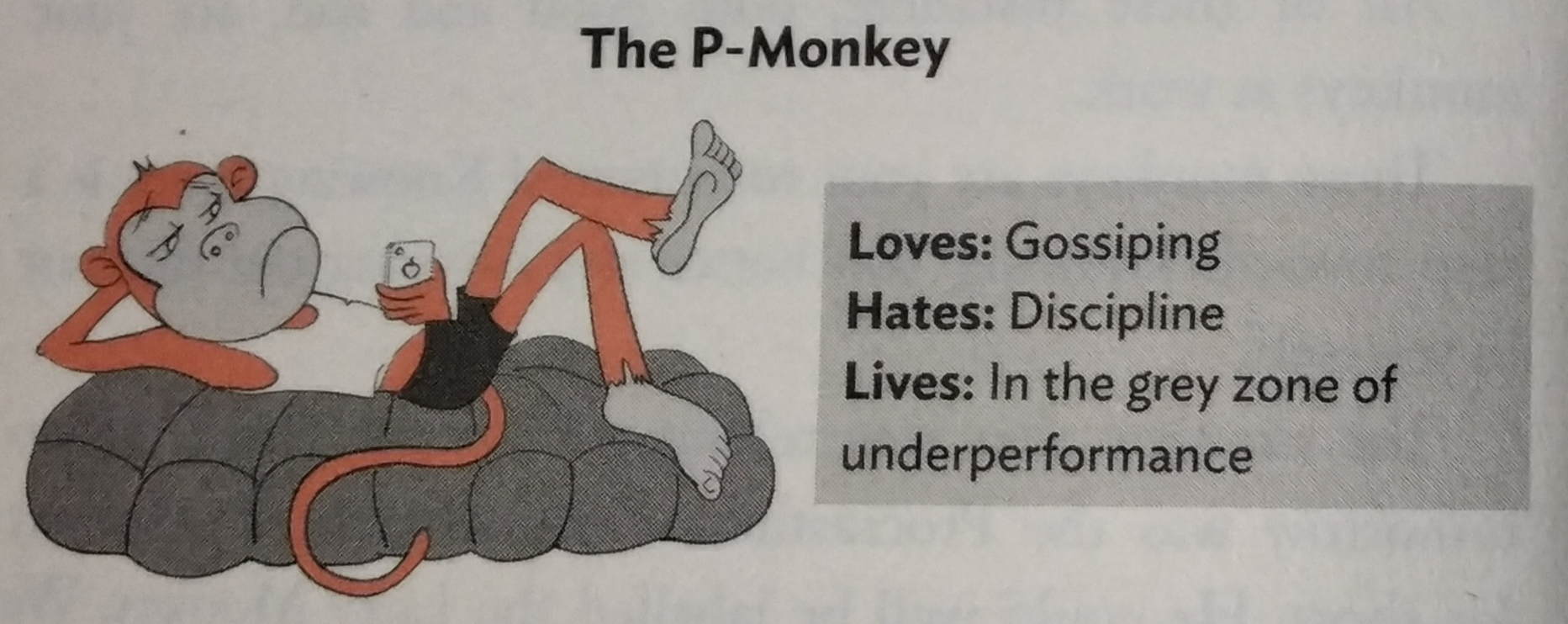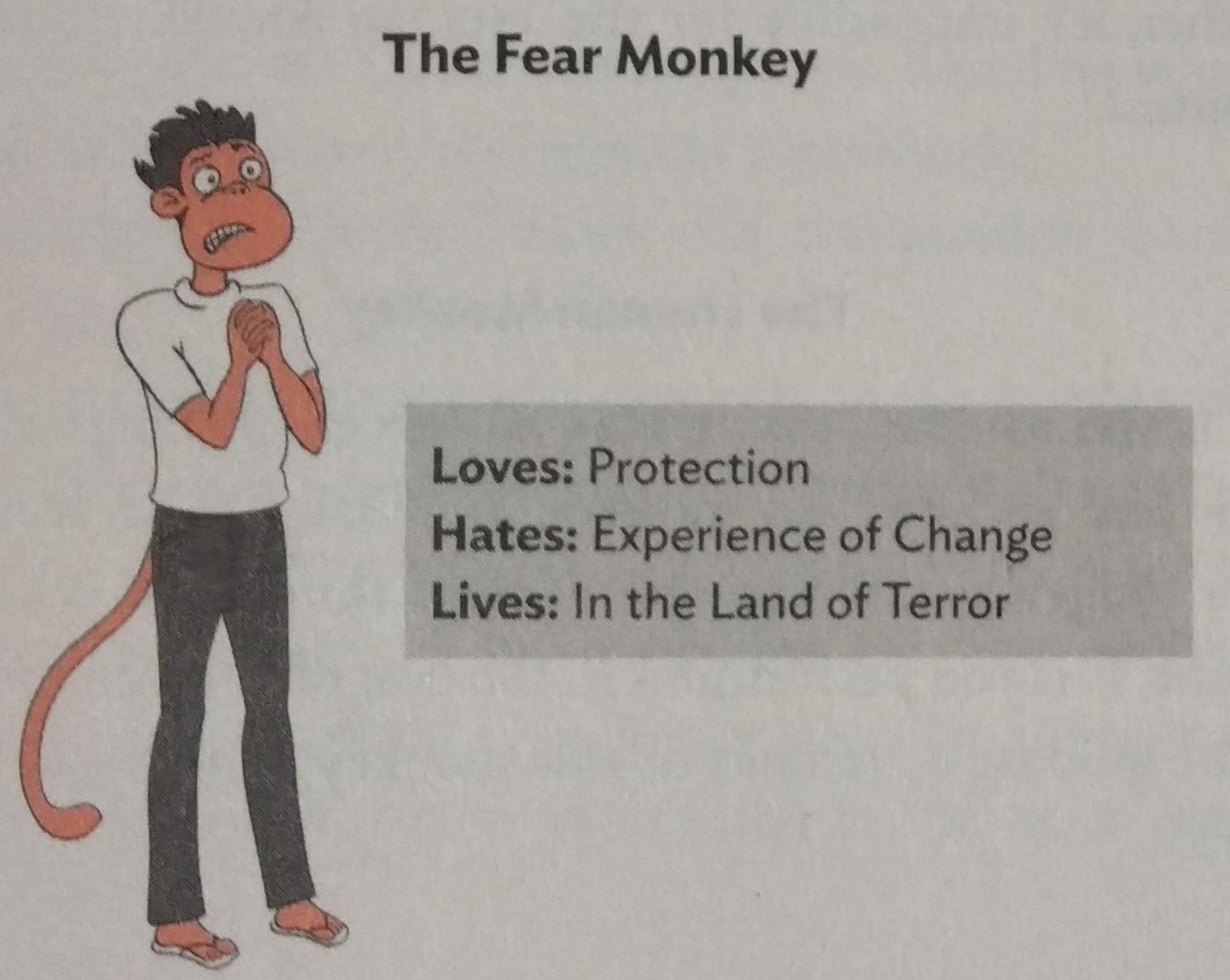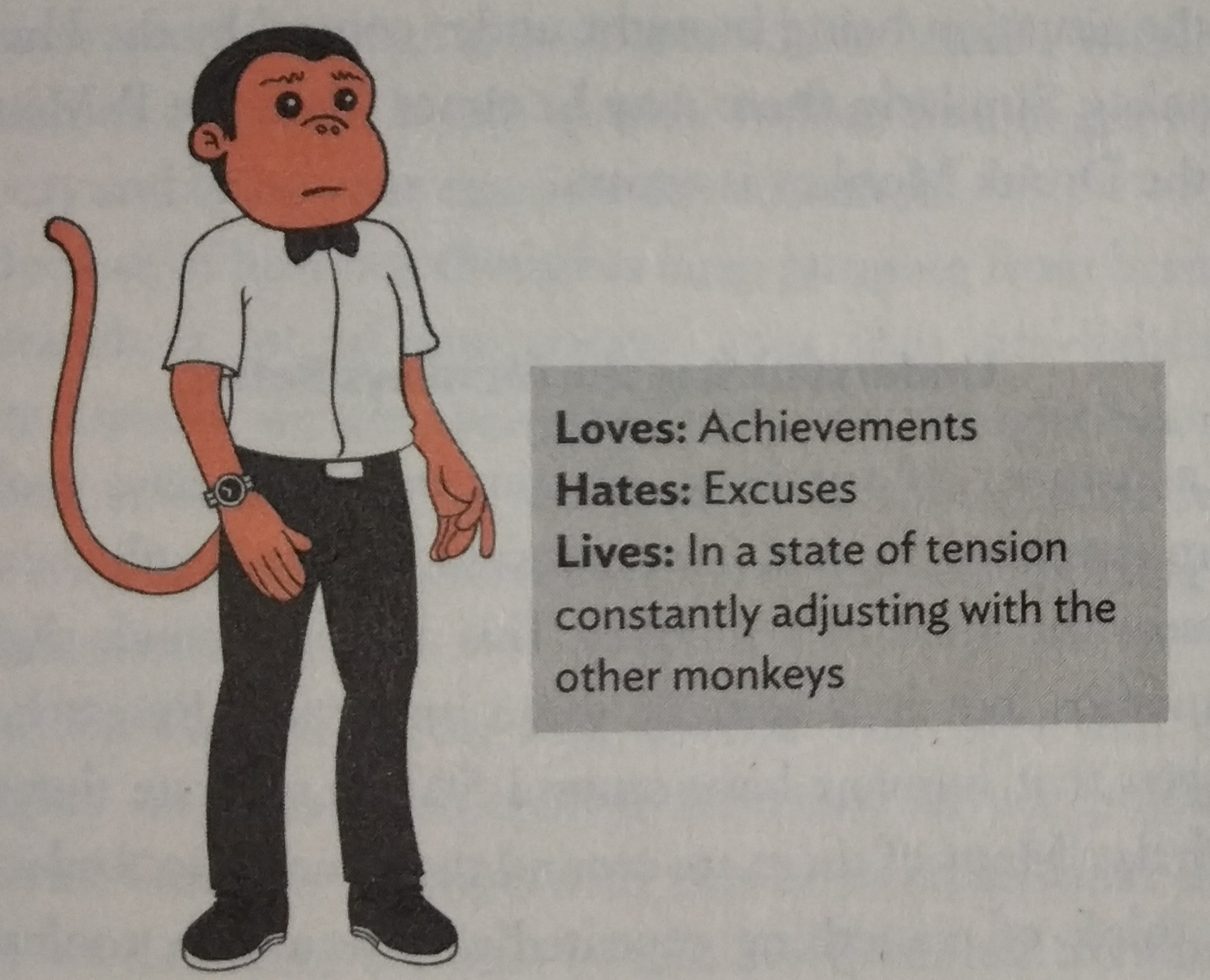“Let’s start on it tomorrow, today we will enjoy!” or “No no no…. It’s too risky, you will get hurt”
These are some of the thoughts which we experience in our day-to-day life. There are other similar thoughts which we also experience in our daily life. According to a research, a human mind have daily on an average 50,000 separate thoughts. While most of these thoughts (i.e. 70%) is about the fear or the pressure to perform in our daily life. Being frustrated with life is a normal state of being for many.
To understand about these various thoughts and to manage them, author Sfurti Sahare in her book, “The Monkey Theory” has shared her views. She co-related the thoughts to the monkeys, as it is said we evolved from monkeys. So our mind may be working in same way, as mind of the monkey. She has given an animal or bird character to our feeling and emotions to better understand and able to have a peace mind. Like 4 monkeys for Procrastinating, Fear, Moody, Humane, while there is an Eagle of wisdom, who guides Humane monkey in controlling the other 3 monkeys. Let’s understand about each of these monkeys…
THE P – MONKEY
 P-Monkey or Procrastinating Monkey is also called Lazy Monkey. He loves to gossip and hates the people who are disciplined, as he himself don’t follow discipline. His favorite word is TOMORROW and is ready with reason on why to start things from tomorrow. Like, If you feel like you should quit smoking, this monkey will tell you to do it, but … tomorrow!
P-Monkey or Procrastinating Monkey is also called Lazy Monkey. He loves to gossip and hates the people who are disciplined, as he himself don’t follow discipline. His favorite word is TOMORROW and is ready with reason on why to start things from tomorrow. Like, If you feel like you should quit smoking, this monkey will tell you to do it, but … tomorrow!
If you feel like you should start exercising from today, this monkey will tell you to start it, but … tomorrow!
THE DRUNKEN MONKEY
 The Drunken Monkey comes always with various moods and random thoughts. He keeps on changing the thoughts, ideas frequently and do not stay with one. He keeps moving from one mood to another, just like a train from one station to another station. Just like a drunken person hates to be controlled by others, he is also of same nature. For example, yesterday you bought a new colorful dinner set and arranged properly on the dinner table. Next day at table, you feel like, “I should have got the plain color set!” which was rejected by you.
The Drunken Monkey comes always with various moods and random thoughts. He keeps on changing the thoughts, ideas frequently and do not stay with one. He keeps moving from one mood to another, just like a train from one station to another station. Just like a drunken person hates to be controlled by others, he is also of same nature. For example, yesterday you bought a new colorful dinner set and arranged properly on the dinner table. Next day at table, you feel like, “I should have got the plain color set!” which was rejected by you.
THE FEAR MONKEY
 This Fear Monkey is a protective and always protect you from the danger (known or unknown). He hates changes and find ways or reasons to avoid these changes. He is always in state of fear which curtails our ability in taking risks. This monkey affects our confidence, creativity and courage. He keeps on uttering the sentences like below continuously in our mind –
This Fear Monkey is a protective and always protect you from the danger (known or unknown). He hates changes and find ways or reasons to avoid these changes. He is always in state of fear which curtails our ability in taking risks. This monkey affects our confidence, creativity and courage. He keeps on uttering the sentences like below continuously in our mind –
“No, no … don’t say that … they might make fun of you. What will they think? you might sound dumb!“
“They will never let you take the big steps. Don’t be ambitious.“
THE HUMANE MONKEY
 This Humane Monkey is who wants all good things for us. It has a better judgement, through which analyse the things and helps in giving our best performance. The one thing he hates most is excuses/ reasons. Most of the time he is busy in managing and keeping the other 3 monkeys slient, so stay in state of tension constantly. For example, if a person is on his way for interview and is scared about the result of it, he is not able to recall anything. This is due to Fear monkey who is dominant. But after reaching for interview, the person is able to calm himself and gives his best in the interview. this was possible due to Humane monkey who controlled the earlier one.
This Humane Monkey is who wants all good things for us. It has a better judgement, through which analyse the things and helps in giving our best performance. The one thing he hates most is excuses/ reasons. Most of the time he is busy in managing and keeping the other 3 monkeys slient, so stay in state of tension constantly. For example, if a person is on his way for interview and is scared about the result of it, he is not able to recall anything. This is due to Fear monkey who is dominant. But after reaching for interview, the person is able to calm himself and gives his best in the interview. this was possible due to Humane monkey who controlled the earlier one.
THE EAGLE OF WISDOM
The Eagle of Wisdom is mighty in size and majestic in disposition. He is kind, composed and dignified having sharp observation, alertness and good knowledge.
These characters will helps us to understand our mind, the thoughts which come and go. They will also help in controlling the monkeys which disturb or create chaos in our life.

